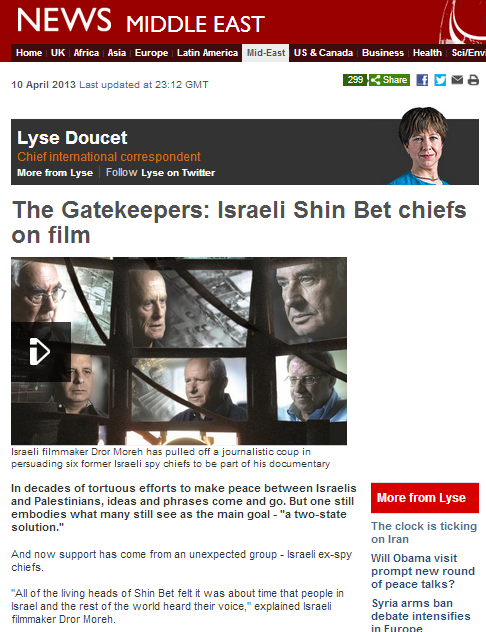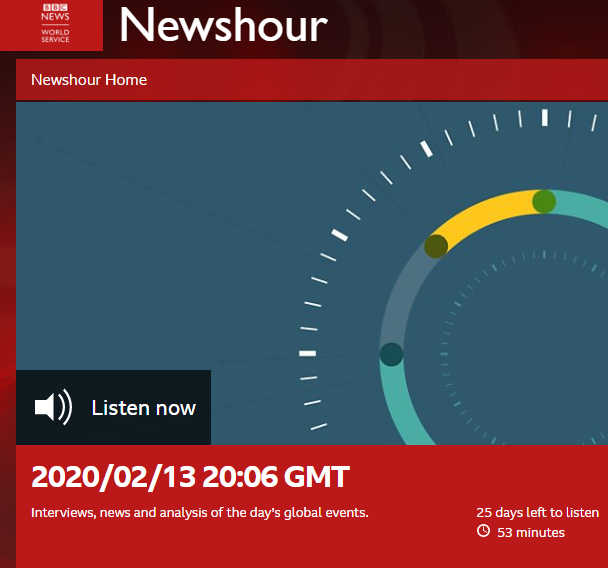On October 19th a report relating to a statement put out by the US envoy Jason Greenblatt appeared on the BBC News website’s Middle East page under the title “Hamas must disarm to join Palestinian unity government – US“.
Mr Greenblatt’s statement read as follows:
“All parties agree that it is essential that the Palestinian Authority be able to assume full, genuine, and unhindered civil and security responsibilities in Gaza and that we work together to improve the humanitarian situation for Palestinians living there. The United States reiterates the importance of adherence to the Quartet principles: any Palestinian government must unambiguously and explicitly commit to nonviolence, recognize the State of Israel, accept previous agreements and obligations between the parties – including to disarm terrorists – and commit to peaceful negotiations. If Hamas is to play any role in a Palestinian government, it must accept these basic requirements.”
The BBC’s reporting of that statement erased its reference to the Quartet principles – thereby (once again) steering readers to the inaccurate view that the conditions described are solely the view of the US and excluding the existing agreements between Israel and the PLO from its framing of the story. Superfluous use of scare quotes around the word terrorists was also evident.
“The United States says the militant Islamist movement Hamas must lay down its weapons if it is to play a part in a new Palestinian government. […]
US special envoy Jason Greenblatt said any Palestinian unity administration would need to recognise the State of Israel and disarm “terrorists”. […]
In a statement issued on Thursday, Mr Greenblatt said it was essential that the PA was able to “assume full, genuine, and unhindered civil and security responsibilities in Gaza” and that the humanitarian situation there was improved.
He also stressed that “any Palestinian government must unambiguously and explicitly commit to non-violence, recognise the State of Israel, accept previous agreements and obligations between the parties – including to disarm terrorists – and commit to peaceful negotiations”.”
Later on in the article readers were told of the Israeli view and once again unnecessary punctuation around the words terror and terrorism (that was not present in the original document paraphrased by the BBC) was added by the BBC.
“…Benjamin Netanyahu […] insisted he would “not conduct diplomatic negotiations with a Palestinian government that relies on Hamas” unless the following conditions were met:
- Hamas recognises Israel, “desists from terrorism” and disarms
- The bodies of Israeli soldiers and civilians held by Hamas are returned
- The PA exercises full security control in Gaza
- The PA continues to act against Hamas “terror infrastructure” in the West Bank
- Hamas severs its ties with Iran
- Funds and humanitarian equipment continues to flow into Gaza only via the PA”
While the BBC’s report included paraphrased quotes from a Hamas official taken from an AFP article on the same topic, the corporation did not update its report to include comments made by Hamas leader Yahya Sinwar later on the same day, as reported by Ha’aretz.
“Hamas will not disarm, recognize Israel or cut off ties with Iran, as Israel and the United States are demanding of it, Yahya Sinwar, the organization’s leader in the Gaza Strip, said on Thursday. […]
Meeting with Palestinian youths, Sinwar declared, “The discussion is no longer about recognizing Israel but about wiping Israel out.”
He said Hamas would disarm “when Satan enters paradise,” and that no one can force it to disarm. “There’s not one minute of the day or night when we aren’t building up our military might.” […]
At Thursday’s meeting, Sinwar discussed the demand that Hamas cool its relationship with Iran. He stressed that Hamas is not willing to sever its ties with Iran. “Anyone who thinks we’ll sever ties with Tehran is delusional,” he said. “Our relationship with Iran or Egypt or any Arab or Muslim state provides us with strategic depth.””
If BBC audiences are to understand this issue fully, they obviously need to be informed that the statements concerning a Palestinian unity government put out by the United States and Israel are in line with the Quartet Principles. The BBC’s policy of placing the word terror and its derivatives in scare quotes and its failure to inform audiences of the extremist response from Hamas’ leader in the Gaza Strip also clearly hinders audience understanding of the story.
Related Articles:
BBC’s chief international correspondent claims Hamas changed its charter




